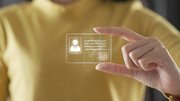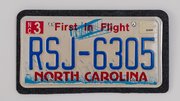News
Headache relief for QSRs and C-stores
October 26, 2004
The daily influx of cash at quick-service restaurants and convenience stores can be a major headache. Cash on hand is a security risk and it must be deposited nightly.
Many big-box stores use self-checkout systems, which systems could also help small retailers address the cash problem by distributing it back to customers through their transactions. The $70,000 entry-level price tag for these systems is out of reach for most quick service restaurants and c-stores, however. In addition, small shops cannot accommodate the large footprint of typical self-checkout systems.
The Self-Checkout Solution by Corporate Safe Specialists offers the functionality small stores need at a manageable price and size. The SOS is currently undergoing lab testing by a nationwide fast food company and is being tested in the field by a convenience store chain in Minnesota.
|
The machines are also useful to those who have no banking relationship. These "unbanked" customers always pay in cash.
"Having the ability to pay for things in cash and get your change is what's nice about self-checkout units that I've used, but none of them have the footprint the size of the SOS. I think that is one of the strongest features of this machine," said Mendelsohn.
Reduce risk: Recycle
Using a JCM Recycler, the kiosk acts as an ATM, allowing the customer to receive cash back from the transaction. So if one customer uses the kiosk and pays cash, and if the bills are put through the recycler correctly, the next person who comes along can pay for his or her merchandise and receive cash back.
For retailers, three benefits are clear. Instead of depositing the cash at the bank, they give it back to their customers, reducing the security risk. Dispensing cash to customers also reduces the expense of paying the store manager to deposit the cash at the bank that night. Finally, it increases revenue because the retailers can charge $1 per transaction.
Even with all of the benefits cash-dispensing kiosks offer, reliability is a key concern. Ed McGunn, president of Corporate Safe Specialists, cites surveys that have shown that 40 percent of customers will try a kiosk the first time they see it, but if it doesn't work 80 percent of those customers will never come back to the machine.
Anticipation and interest are high among retailers for cash-dispensing kiosks. Of the technology, McGunn said, "I know that the people I do business with, the small footprint businesses, are hungry for kiosks."
 ChatGPT
ChatGPT Grok
Grok Perplexity
Perplexity Claude
Claude













